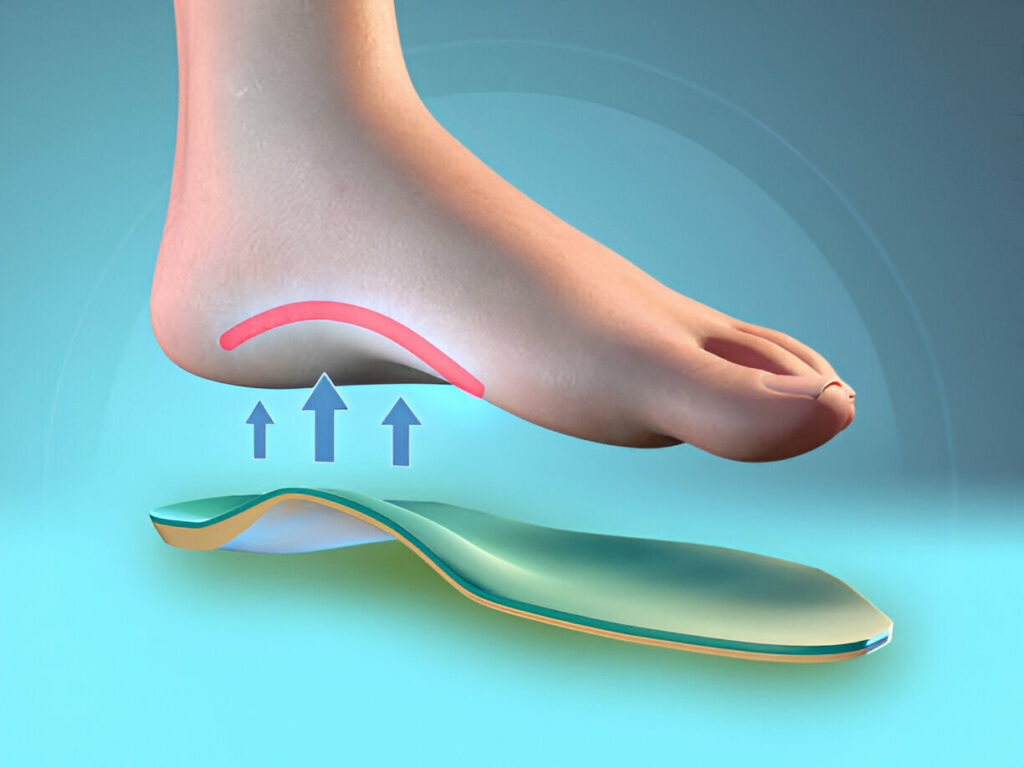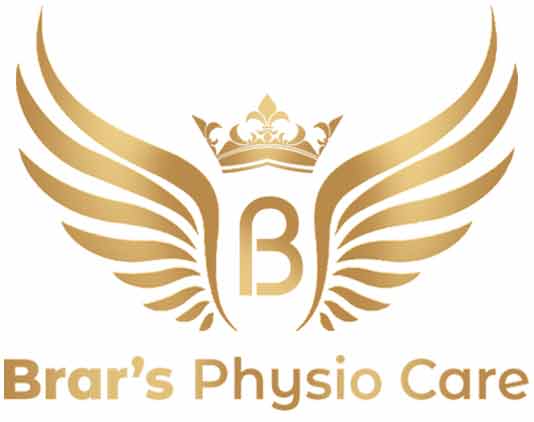07 Common Physical Therapy Techniques for Plantar Fasciitis
Introduction:
Plantar fasciitis, a common cause of heel pain, affects around 10% of the population at some point in their lives. This condition, characterized by inflammation of the plantar fascia—a thick band of tissue connecting the heel bone to the toes—can significantly impact daily activities.
Physical therapy is one of the most effective treatment approaches, offering relief and promoting healing. Here are seven common physical therapy techniques for treating plantar fasciitis, supported by scientific data and statistics.
-
Stretching Exercises
- Key Stats: Studies show that stretching exercises alleviate symptoms in 80% of plantar fasciitis patients within 6-8 weeks.
- Technique: Stretching the plantar fascia, Achilles tendon, and calf muscles reduces tension and promotes flexibility. Common exercises include towel stretches, calf stretches, and toe stretches.
- Scientific Basis: A study published in the Journal of Bone and Joint Surgery found that consistent stretching exercises significantly reduced pain and improved function in plantar fasciitis patients.
-
Strengthening Exercises
- Key Stats: Strengthening exercises can lead to a 70% reduction in pain for patients over three months of consistent practice.
- Technique: Strengthening the intrinsic foot muscles and lower leg muscles supports the arch and alleviates stress on the plantar fascia. Exercises include toe curls, marble pickups, and heel raises.
- Scientific Basis: Research in the British Journal of Sports Medicine demonstrated that strengthening exercises enhance muscle balance and reduce the risk of recurrence in plantar fasciitis patients.
-
Manual Therapy
- Key Stats: Manual therapy improves pain and function in 60-70% of patients within 4-6 weeks.
- Technique: Physical therapists use hands-on techniques to manipulate soft tissues and joints, reducing tension, improving blood flow, and promoting healing.
- Scientific Basis: A study in The Journal of Orthopaedic and Sports Physical Therapy showed that manual therapy combined with exercise was more effective than exercise alone for treating plantar fasciitis.
-
Icing
- Key Stats: Icing can reduce pain and inflammation by 50-60% when applied regularly over several weeks.
- Technique: Applying ice packs to the affected area for 15-20 minutes several times a day helps reduce inflammation and numb pain.
- Scientific Basis: The Journal of Athletic Training reported that cryotherapy effectively reduces pain and inflammation in plantar fasciitis patients.
-
Orthotics and Taping
- Key Stats: Custom orthotics and taping techniques can reduce pain by 40-60% and improve function in 50-70% of patients.
- Technique: Orthotic devices, such as arch supports and heel cups, provide cushioning and support. Taping techniques, like low-dye taping, stabilize the foot and reduce strain on the plantar fascia.
- Scientific Basis: Research in the Journal of the American Podiatric Medical Association highlighted the effectiveness of orthotics and taping in managing plantar fasciitis symptoms.
-
Night Splints
- Key Stats: Night splints alleviate morning pain and stiffness in 80% of plantar fasciitis patients within 4-6 weeks.
- Technique: Night splints keep the foot dorsiflexed, stretching the plantar fascia and Achilles tendon overnight.
- Scientific Basis: Studies in the American Journal of Sports Medicine have shown that night splints significantly reduce morning pain and improve overall function.
-
Shockwave Therapy
- Key Stats: Extracorporeal shockwave therapy (ESWT) has a success rate of 70-80% in reducing pain and improving function in chronic plantar fasciitis patients.
- Technique: ESWT uses sound waves to stimulate healing and reduce pain by increasing blood flow and promoting tissue regeneration.
- Scientific Basis: Clinical trials published in Foot & Ankle International demonstrate the effectiveness of ESWT in chronic cases of plantar fasciitis.

Tips on preventing plantar fasciitis:
Preventing plantar fasciitis involves adopting lifestyle changes and practices that reduce strain on the plantar fascia and promote overall foot health. Here are some effective tips to help prevent this painful condition:
1. Wear Supportive Footwear
- Choose the Right Shoes: Opt for shoes with good arch support, cushioning, and a stable heel. Avoid wearing high heels or flat shoes without support for extended periods.
- Replace Worn-Out Shoes: Regularly replace athletic shoes and other footwear that have lost their cushioning and support.
2. Maintain a Healthy Weight
- Reduce Strain: Excess weight puts additional stress on the plantar fascia. Maintaining a healthy weight can help minimize this strain.
3. Exercise Regularly
- Strengthen Muscles: Engage in exercises that strengthen the muscles of your feet, legs, and lower body to improve support for your arches.
- Stretching: Regularly stretch your calves, Achilles tendons, and the plantar fascia itself to maintain flexibility and reduce tension.
4. Practice Good Foot Hygiene
- Foot Care: Keep your feet clean and dry. Moisturize if your skin is dry, but avoid letting it become too soft or prone to infections.
5. Avoid Overloading Your Feet
- Gradual Increase in Activity: When starting a new exercise program or increasing the intensity of your activities, do so gradually to avoid overloading the plantar fascia.
- Cross-Training: Incorporate low-impact activities, such as swimming or cycling, to reduce repetitive stress on your feet.
6. Use Orthotics if Needed
- Custom Orthotics: Consider using custom orthotic inserts to provide additional arch support and cushioning if you have flat feet or high arches.
- Over-the-counter Inserts: Over-the-counter arch supports and heel cups can also be beneficial.
7. Pay Attention to Pain
- Early Intervention: If you experience foot pain, especially in the heel area, address it early. Rest, ice, and over-the-counter anti-inflammatory medications can help manage initial symptoms.
- Consult a Professional: Seek advice from a healthcare provider or physical therapist if pain persists or worsens.
8. Warm Up and Cool Down
- Proper Warm-Up: Always warm up before engaging in physical activities to prepare your muscles and reduce the risk of injury.
- Cool Down: Stretch and cool down after exercising to help your muscles recover and maintain flexibility.
9. Maintain Good Posture
- Correct Posture: Practice good posture while standing, walking, and exercising to reduce unnecessary stress on your feet and lower limbs.
10. Avoid Walking Barefoot on Hard Surfaces
- Use Slippers: Wear supportive slippers or sandals at home, especially if you have hard flooring, to provide cushioning and support.
By incorporating these preventive measures into your daily routine, you can significantly reduce the risk of developing plantar fasciitis and maintain healthy, pain-free feet.

The Journey to Pain-Free Living:
Imagine the life of Meera, an active professional in Mohali who loved her evening jogs. One day, she started experiencing a sharp pain in her heel, which worsened over time. The pain from plantar fasciitis affected her daily activities and left her feeling frustrated and disheartened.
In her search for relief, Meera discovered the Best Physiotherapist in Mohali, a renowned clinic specializing in plantar fasciitis treatment in Mohali. Our dedicated physiotherapist in Mohali created a personalized treatment plan for her, incorporating the seven physical therapy techniques discussed above.
Through consistent stretching and strengthening exercises, Meera regained flexibility and strength in her foot. Manual therapy sessions relieved her pain, while icing and orthotics provided additional support and comfort. Night splints helped her wake up without the dreaded morning stiffness, and the innovative shockwave therapy accelerated her healing process.
Under the expert care of the Physiotherapy Home visit service in Mohali, Meera’s condition improved significantly. She was soon able to return to her beloved evening jogs, pain-free and full of energy. Her journey from pain to recovery highlights the transformative impact of effective physical therapy.
If you’re struggling with plantar fasciitis and looking for relief, consider the comprehensive and compassionate care provided by us. Just like Meera, you can embark on a journey to pain-free living, supported by a team of experts dedicated to your well-being.
The Brar’s Physio Care Approach: Personalized, Patient-Centered, And Proven
At Brar’s Physio Care, the focus is on providing personalized treatment plans tailored to each patient’s unique needs. Here’s how our approach can help you overcome plantar fasciitis:
-
Comprehensive Assessment
The healing journey begins with a thorough assessment. The skilled physiotherapists at our clinic take the time to understand your specific symptoms, lifestyle, and goals. This comprehensive evaluation helps in crafting a customized treatment plan that addresses the root cause of your pain.
-
Evidence-Based Techniques
We utilize the latest evidence-based techniques to ensure the best outcomes for our patients. From stretching and strengthening exercises to manual therapy and shockwave therapy, our methods are grounded in scientific research and clinical effectiveness.
-
Holistic Approach
Understanding that plantar fasciitis can impact various aspects of your life, we adopt a holistic approach to treatment. We not only focus on alleviating your current pain but also on preventing future issues through education and ongoing support.
-
Patient Education and Empowerment
At Brar’s Physio Care, patient education is a cornerstone of our practice. We empower the patient with the knowledge and tools needed to manage their condition effectively. You’ll learn about proper footwear, home exercises, and lifestyle modifications that can support your recovery and long-term health.
Transformations at the Best physiotherapy centre in Mohali
Consider the story of Sandeep, a school teacher from Mohali. Sandeep’s passion for teaching was overshadowed by the persistent heel pain of plantar fasciitis. Standing for long hours in the classroom became unbearable, and he feared he might have to give up his profession.
After seeking Plantar Fasciitis Treatment in Mohali at Brar’s Physio Care, Sandeep received a personalized treatment plan that included stretching exercises, manual therapy, and custom orthotics. Within weeks, Sandeep noticed a significant reduction in pain and could stand and teach without discomfort. His experience mirrors that of many others who have found relief and regained their quality of life through the expert care provided at Brar’s Physio Care.

Your Path to Recovery
Just like Meera and Sandeep, you too can find relief from plantar fasciitis with the right treatment. Brar’s Physio Care is committed to helping you on your journey to pain-free living. Our team of skilled physiotherapists in Chandigarh and Mohali will work with you every step of the way, ensuring that you receive the best possible care tailored to your needs.
Ready to Take the Next Step?
If plantar fasciitis is holding you back from enjoying life, don’t wait any longer. Contact us today and start your journey to recovery. With their personalized, patient-centered approach, you can look forward to a future without pain and filled with the activities you love.
Experience the transformation that expert physical therapy can bring. Let us guide you on the path to healing, just as we have for so many others in Mohali. Your journey to pain-free living begins now.

